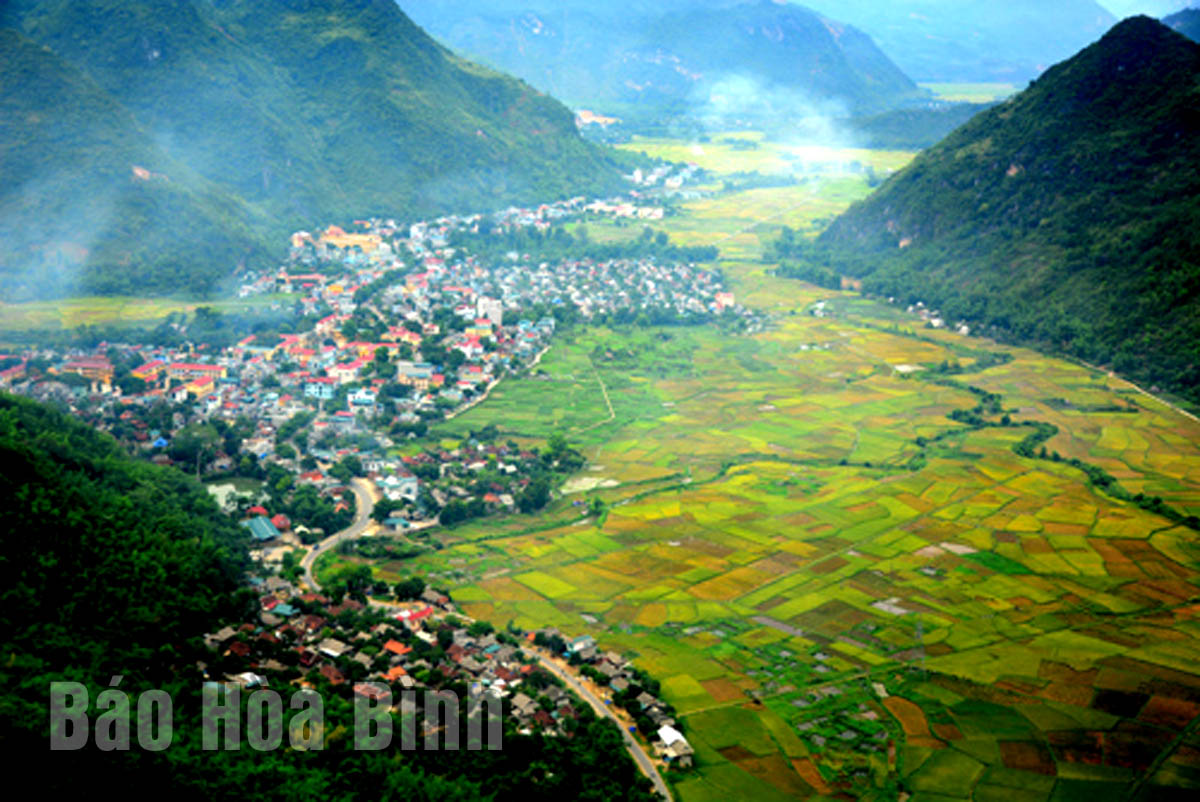
(HBO) - The Standing Board of the provincial Party Committee has just issued Resolution No. 20-NQ/TU orienting the development of Mai Chau township into a four-tier urban area to 2030.
Mai Chau township in the district of the same name will become a four-tier urban area by 2030.
The target will be realised on the basis of promoting existing potentials and strengths. The locality will preserve and promote cultural values while restructuring the economy towards increasing the proportion of trade - services and industry – construction. Agriculture will be developed in the direction of biotechnology, high quality and added value so as to turn Mai Chau township into a centre of tourism and service development of the province.
To achieve sustainable economic development, Mai Chau township will invest in building modern and synchronous infrastructure; reasonable labour structure, diversifying jobs, contributing to improving the people's material and spiritual life as well as ensuring national defence – security. The locality will build a strong political system, a contingent of cadres and civil servants with firm political spirit, professional skills and management capacity which meet the requirements of tasks in the new situation.
Implementing the resolution, from 2023 - 2025, the province will assist Mai Chau district in completing a project on adjustment and expansion of the general planning with a scale of 1/5000 for Mai Chau township by 2030, with a vision to 2040. The locality will effectively exploit available strengths, focusing on meeting criteria and standards of a four-tier urban area, especially building and upgrading the technical infrastructure network. From 2026 – 2030, attention will be paid to expanding the urban area to the north, south and southwest; developing new urban areas as well as completing technical and social infrastructure. It strives to be recognised as a four-tier urban area by 2030.
The total investment capital to realise the target is about 1.1 trillion VND (46.2 million USD). This sum of capital mainly comes from the provincial budget and mobilises from non-state budget sources.
Hoa Binh province has harnessed its rich cultural heritage and human potential to forge the path towards sustainable development in the new era.
In Hoa Binh province, 11 traditional craft villages with more than 400 small-scaled production households have put in place a clean and green production model, establishing new standards for sustainable development. Waste collection sites and wastewater treatment facilities have been meticulously managed by local residents.
To make it easier for the residents to handle administrative procedures, Yen Bong Commune (Lac Thuy District) has identified the administrative reform as one of its key tasks. By implementing a range of synchronized solutions, the commune has seen the positive changes in the administrative reform, meeting the needs of its people.
Mai Chau district has firmly established itself as a standout destination on Vietnam’s tourism map, attracting both domestic and international visitors with its breathtaking landscapes, rich ethnic culture, and warm hospitality. However, beyond its natural and cultural charm, a secure and well-managed tourism environment has added to Mai Chau’s appeal.
As Vietnam enters a new phase of economic and administrative reform in 2025, Hoa Binh province is stepping up its efforts to streamline governance, boost economic growth, and attract investment.
The Hoa Binh provincial People's Committee held its monthly meeting on March 26 to review the progress of key projects, assess budget revenue and public investment disbursement, provide feedback on draft documents for submission to the provincial Party Committee's Standing Board, and discuss other important matters related to the committee's governance activities.



